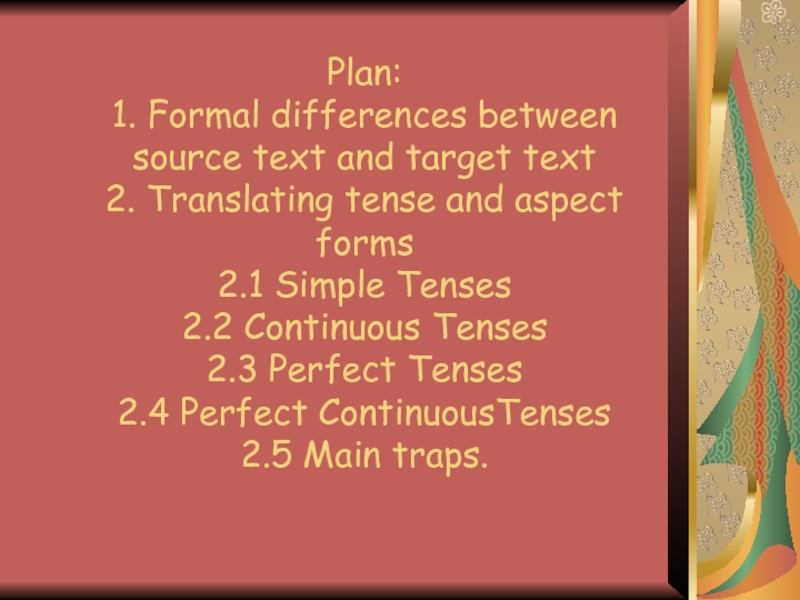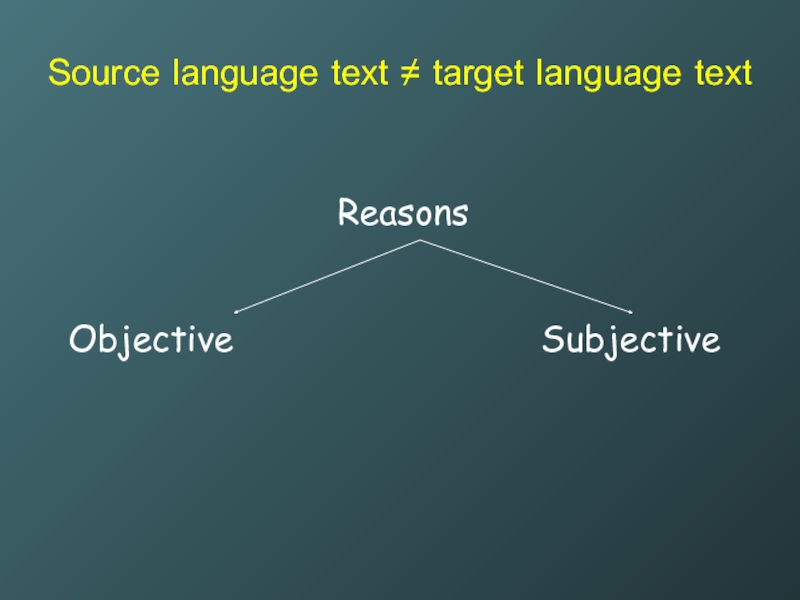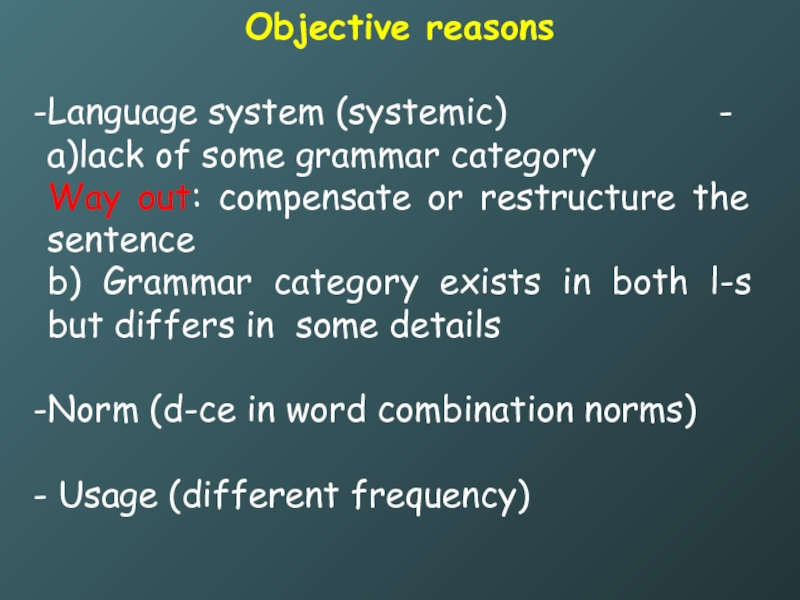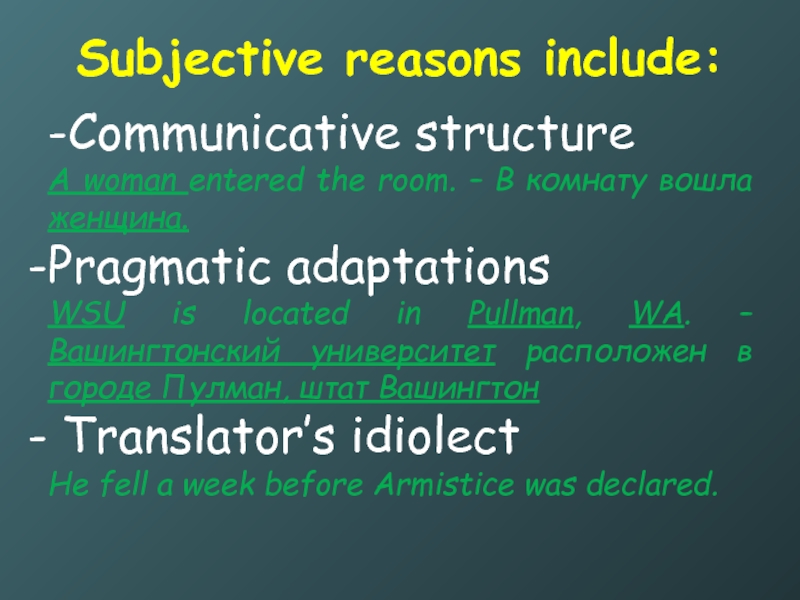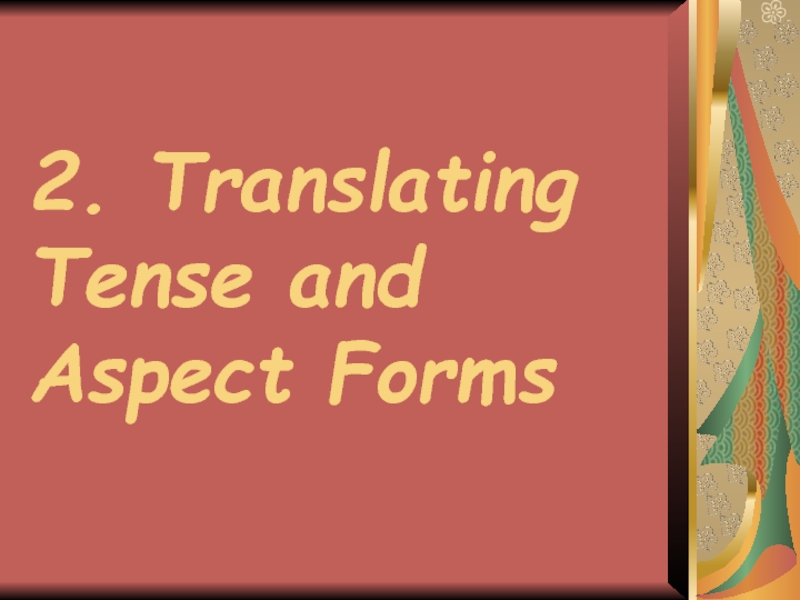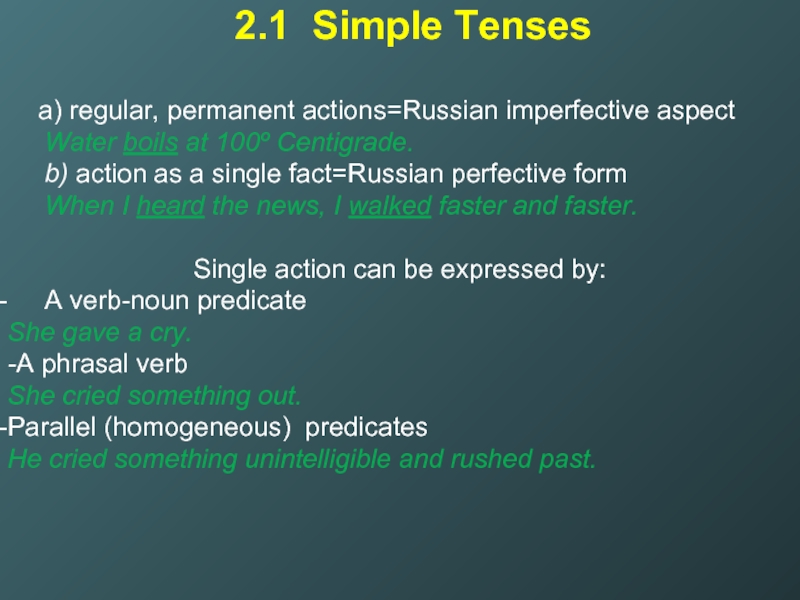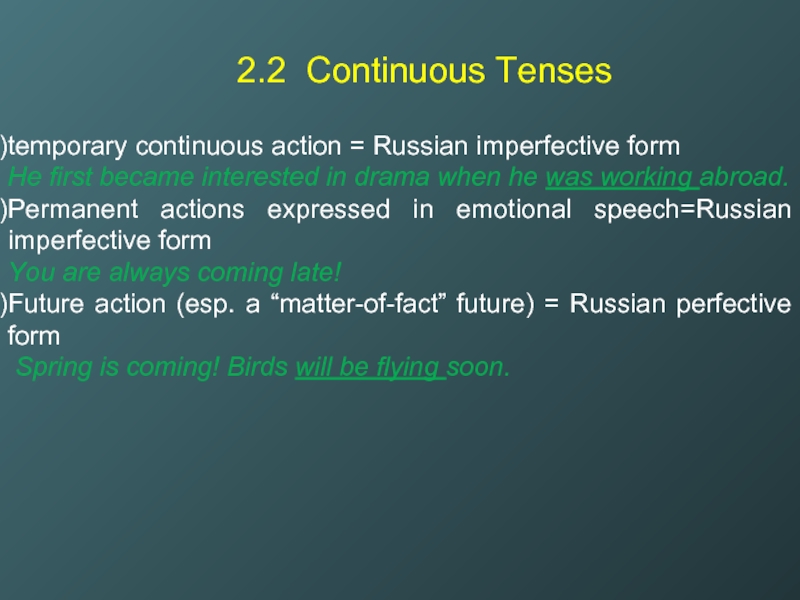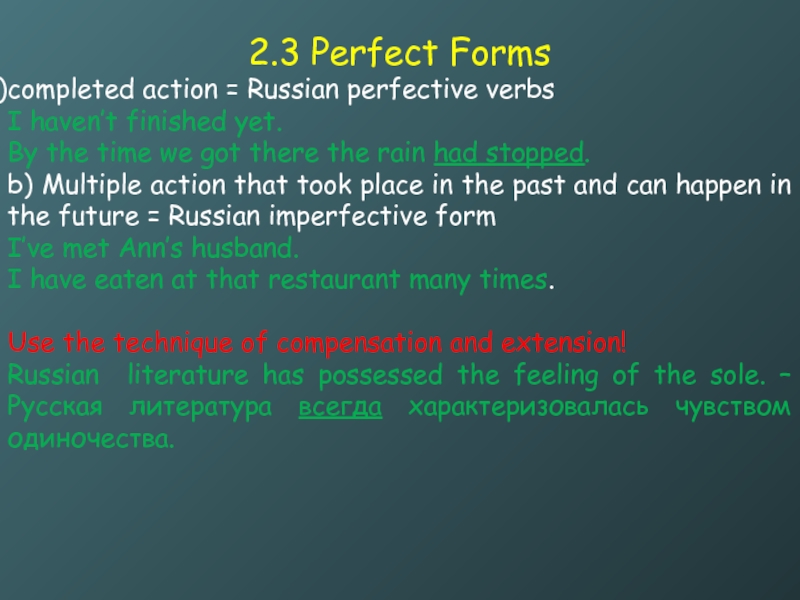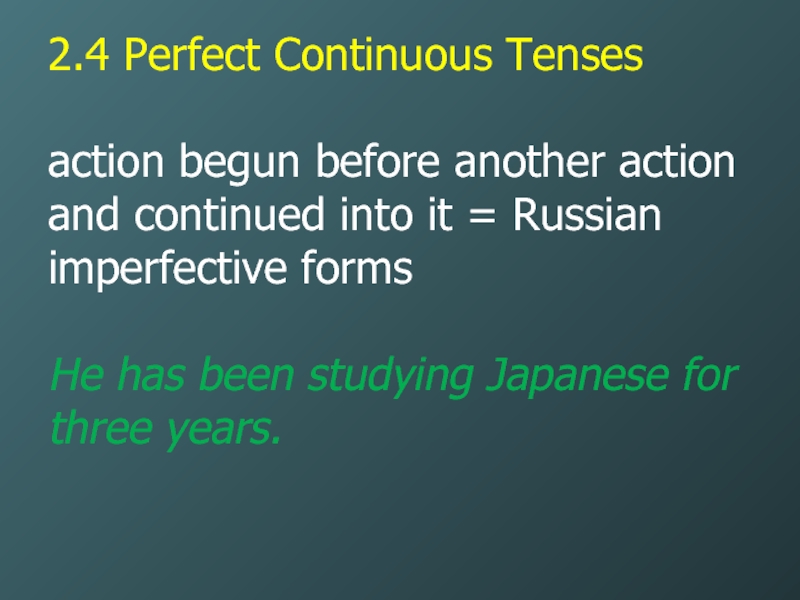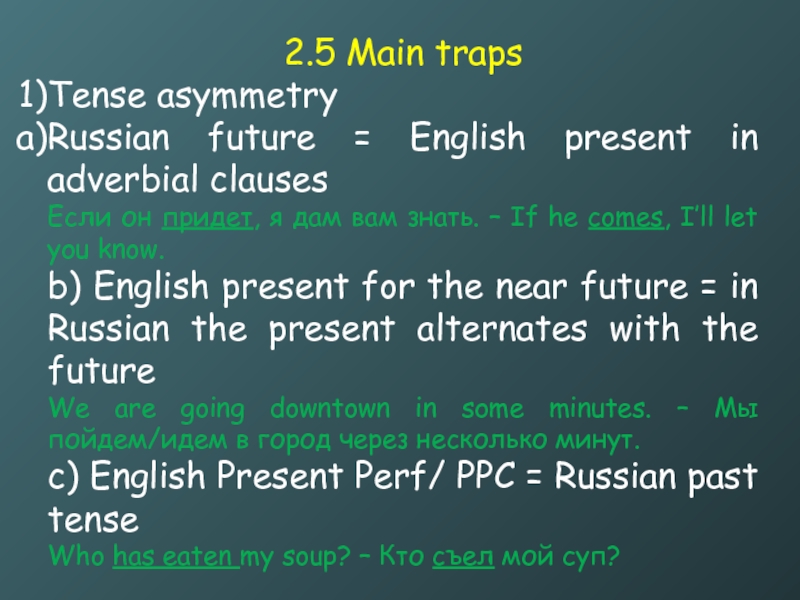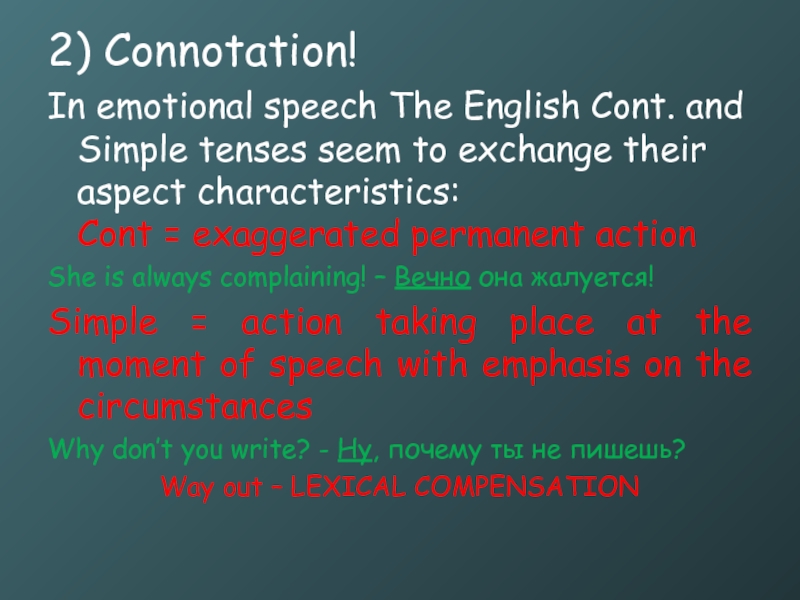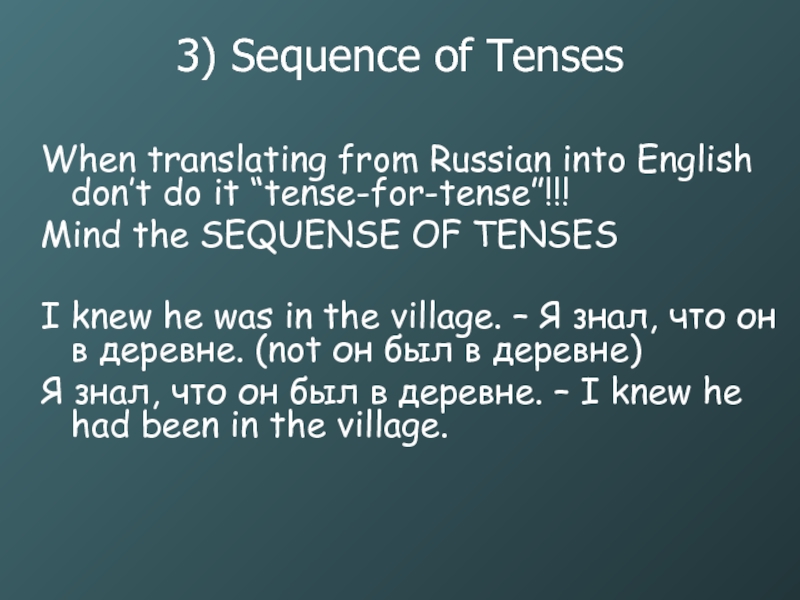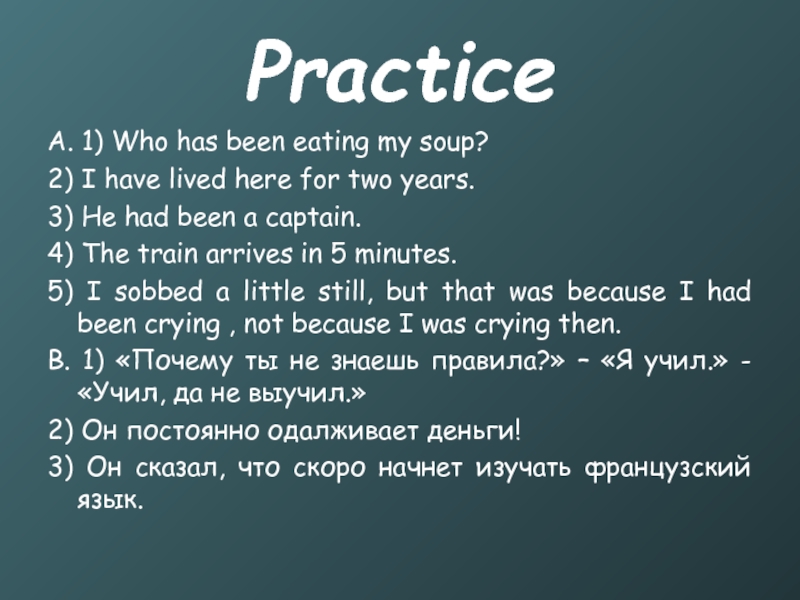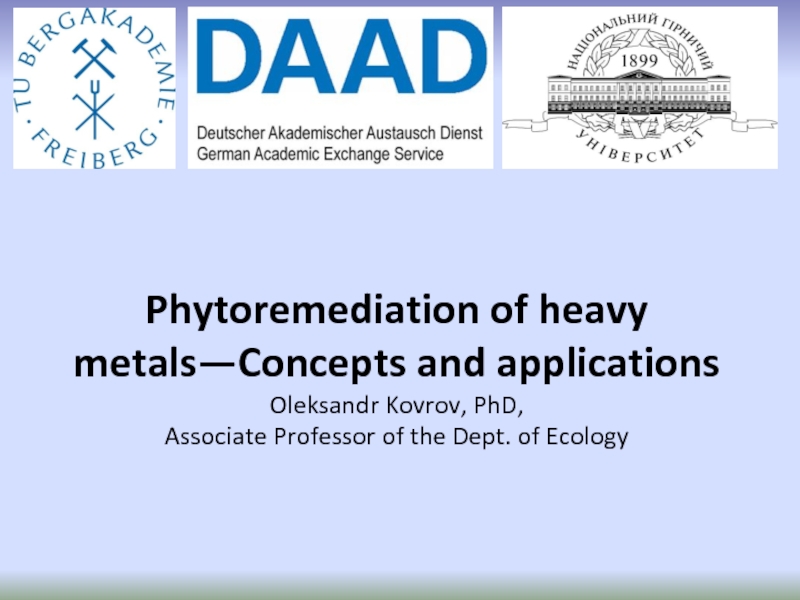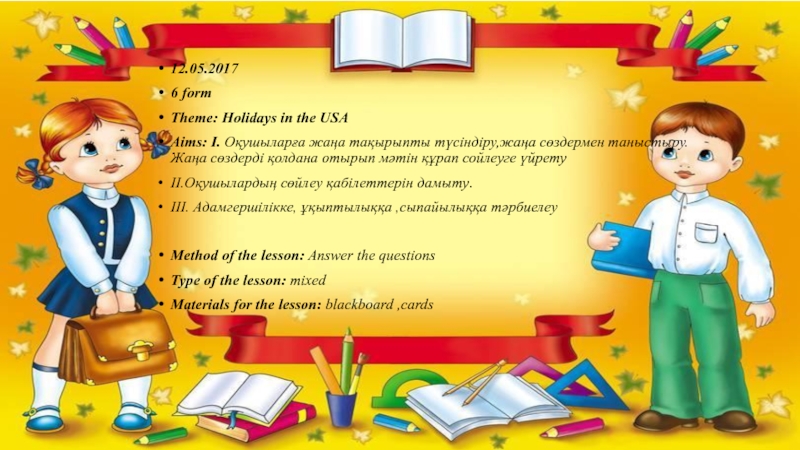- Главная
- Разное
- Дизайн
- Бизнес и предпринимательство
- Аналитика
- Образование
- Развлечения
- Красота и здоровье
- Финансы
- Государство
- Путешествия
- Спорт
- Недвижимость
- Армия
- Графика
- Культурология
- Еда и кулинария
- Лингвистика
- Английский язык
- Астрономия
- Алгебра
- Биология
- География
- Детские презентации
- Информатика
- История
- Литература
- Маркетинг
- Математика
- Медицина
- Менеджмент
- Музыка
- МХК
- Немецкий язык
- ОБЖ
- Обществознание
- Окружающий мир
- Педагогика
- Русский язык
- Технология
- Физика
- Философия
- Химия
- Шаблоны, картинки для презентаций
- Экология
- Экономика
- Юриспруденция
Translating Finite Verb Forms Part I (Tense and Aspect Forms) презентация
Содержание
- 1. Translating Finite Verb Forms Part I (Tense and Aspect Forms)
- 2. Plan: 1. Formal differences between source text
- 3. Source language text ≠ target language text
- 4. Objective reasons Language system (systemic)
- 5. Subjective reasons include: -Communicative structure A
- 6. 2. Translating Tense and Aspect Forms
- 7. 2.1 Simple Tenses
- 9. 2.3 Perfect Forms completed action = Russian
- 10. 2.4 Perfect Continuous Tenses action begun
- 11. 2.5 Main traps Tense asymmetry Russian future
- 12. 2) Connotation! In emotional speech The
- 13. 3) Sequence of Tenses When translating from
- 14. Practice A. 1) Who has been
Слайд 2Plan: 1. Formal differences between source text and target text 2. Translating tense
and aspect forms
2.1 Simple Tenses
2.2 Continuous Tenses
2.3 Perfect Tenses
2.4 Perfect ContinuousTenses
2.5 Main traps.
Слайд 4Objective reasons
Language system (systemic)
-
a)lack of some grammar category
Way out: compensate or restructure the sentence
b) Grammar category exists in both l-s but differs in some details
Norm (d-ce in word combination norms)
Usage (different frequency)
a)lack of some grammar category
Way out: compensate or restructure the sentence
b) Grammar category exists in both l-s but differs in some details
Norm (d-ce in word combination norms)
Usage (different frequency)
Слайд 5Subjective reasons include:
-Communicative structure
A woman entered the room. – В комнату
вошла женщина.
Pragmatic adaptations
WSU is located in Pullman, WA. – Вашингтонский университет расположен в городе Пулман, штат Вашингтон
Translator’s idiolect
He fell a week before Armistice was declared.
Pragmatic adaptations
WSU is located in Pullman, WA. – Вашингтонский университет расположен в городе Пулман, штат Вашингтон
Translator’s idiolect
He fell a week before Armistice was declared.
Слайд 7 2.1 Simple Tenses
a) regular, permanent
actions=Russian imperfective aspect
Water boils at 100º Centigrade.
b) action as a single fact=Russian perfective form
When I heard the news, I walked faster and faster.
Single action can be expressed by:
A verb-noun predicate
She gave a cry.
-A phrasal verb
She cried something out.
Parallel (homogeneous) predicates
He cried something unintelligible and rushed past.
Water boils at 100º Centigrade.
b) action as a single fact=Russian perfective form
When I heard the news, I walked faster and faster.
Single action can be expressed by:
A verb-noun predicate
She gave a cry.
-A phrasal verb
She cried something out.
Parallel (homogeneous) predicates
He cried something unintelligible and rushed past.
Слайд 8
2.2 Continuous Tenses
temporary continuous action
= Russian imperfective form
He first became interested in drama when he was working abroad.
Permanent actions expressed in emotional speech=Russian imperfective form
You are always coming late!
Future action (esp. a “matter-of-fact” future) = Russian perfective form
Spring is coming! Birds will be flying soon.
He first became interested in drama when he was working abroad.
Permanent actions expressed in emotional speech=Russian imperfective form
You are always coming late!
Future action (esp. a “matter-of-fact” future) = Russian perfective form
Spring is coming! Birds will be flying soon.
Слайд 92.3 Perfect Forms
completed action = Russian perfective verbs
I haven’t finished yet.
By
the time we got there the rain had stopped.
b) Multiple action that took place in the past and can happen in the future = Russian imperfective form
I’ve met Ann’s husband.
I have eaten at that restaurant many times.
Use the technique of compensation and extension!
Russian literature has possessed the feeling of the sole. – Русская литература всегда характеризовалась чувством одиночества.
b) Multiple action that took place in the past and can happen in the future = Russian imperfective form
I’ve met Ann’s husband.
I have eaten at that restaurant many times.
Use the technique of compensation and extension!
Russian literature has possessed the feeling of the sole. – Русская литература всегда характеризовалась чувством одиночества.
Слайд 102.4 Perfect Continuous Tenses action begun before another action and continued into
it = Russian imperfective forms
He has been studying Japanese for three years.
Слайд 112.5 Main traps
Tense asymmetry
Russian future = English present in adverbial clauses
Если
он придет, я дам вам знать. – If he comes, I’ll let you know.
b) English present for the near future = in Russian the present alternates with the future
We are going downtown in some minutes. – Мы пойдем/идем в город через несколько минут.
с) English Present Perf/ PPC = Russian past tense
Who has eaten my soup? – Кто съел мой суп?
b) English present for the near future = in Russian the present alternates with the future
We are going downtown in some minutes. – Мы пойдем/идем в город через несколько минут.
с) English Present Perf/ PPC = Russian past tense
Who has eaten my soup? – Кто съел мой суп?
Слайд 12
2) Connotation!
In emotional speech The English Cont. and Simple tenses seem
to exchange their aspect characteristics:
Cont = exaggerated permanent action
She is always complaining! – Вечно она жалуется!
Simple = action taking place at the moment of speech with emphasis on the circumstances
Why don’t you write? - Ну, почему ты не пишешь?
Way out – LEXICAL COMPENSATION
She is always complaining! – Вечно она жалуется!
Simple = action taking place at the moment of speech with emphasis on the circumstances
Why don’t you write? - Ну, почему ты не пишешь?
Way out – LEXICAL COMPENSATION
Слайд 133) Sequence of Tenses
When translating from Russian into English don’t do
it “tense-for-tense”!!!
Mind the SEQUENSE OF TENSES
I knew he was in the village. – Я знал, что он в деревне. (not он был в деревне)
Я знал, что он был в деревне. – I knew he had been in the village.
Mind the SEQUENSE OF TENSES
I knew he was in the village. – Я знал, что он в деревне. (not он был в деревне)
Я знал, что он был в деревне. – I knew he had been in the village.
Слайд 14
Practice
A. 1) Who has been eating my soup?
2) I have lived
here for two years.
3) He had been a captain.
4) The train arrives in 5 minutes.
5) I sobbed a little still, but that was because I had been crying , not because I was crying then.
B. 1) «Почему ты не знаешь правила?» – «Я учил.» - «Учил, да не выучил.»
2) Он постоянно одалживает деньги!
3) Он сказал, что скоро начнет изучать французский язык.
3) He had been a captain.
4) The train arrives in 5 minutes.
5) I sobbed a little still, but that was because I had been crying , not because I was crying then.
B. 1) «Почему ты не знаешь правила?» – «Я учил.» - «Учил, да не выучил.»
2) Он постоянно одалживает деньги!
3) Он сказал, что скоро начнет изучать французский язык.

